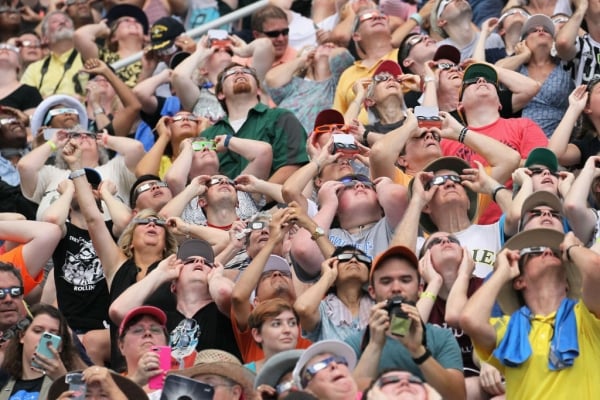On August 21, 2017, millions of people across North America turned their eyes to the sky to witness a rare and awe-inspiring event: a total solar eclipse. As the moon passed between the sun and the Earth, a shadow cast over the land, darkening the sky and revealing the sun’s corona in magnificent detail.
For many, the solar eclipse was a once-in-a-lifetime experience, but for physicists and astronomers, it was a golden opportunity to conduct research and gather valuable data about the sun and its atmosphere. And at colleges and universities across the country, these scientists were given the star treatment, with resources and support usually reserved for football players.
In the weeks leading up to the eclipse, physicists and astronomers from institutions like the University of Colorado and the University of California, Berkeley, were given access to state-of-the-art equipment and facilities to study the eclipse. This included telescopes, cameras, spectrographs, and other specialized tools to capture the event in exquisite detail.
But it wasn’t just the equipment that was provided – colleges also stepped up their game in terms of logistics and support. Teams of researchers were given priority access to accommodations and transportation, with university staff working around the clock to ensure that everything ran smoothly on the day of the eclipse.
And just like professional athletes, physicists were given plenty of media attention and fanfare. Colleges and universities promoted their research and findings through press releases and social media, generating buzz and excitement among the public.
The recognition and support given to physicists during the solar eclipse highlighted the importance of scientific research and exploration in today’s world. By treating these scientists like stars, colleges and universities were able to showcase the value of their work and inspire a new generation of researchers and thinkers.
As the next solar eclipse approaches in 2024, one thing is clear – physicists and astronomers will continue to receive the football-star treatment from colleges and universities, as they strive to unlock the mysteries of the universe and push the boundaries of human knowledge.



